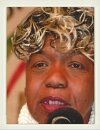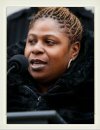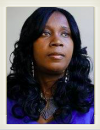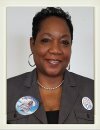Although the street protests of the Black Lives Matter Era have left the media spotlight, police killings of unarmed civilians remains one of the most pressing issues of our time.
Examples abound:
* In 2018, the Supreme Court ruled in favor of a University of Arizona police officer, concluding that he could no be sued for shooting Amy Hughes in her front yard.
* Also this year police fired the Baton Rouge officer who fatally shot Alton Sterling in 2016, following state and federal official announcements that they would not bring criminal charges against police for Sterling's death.
* Summer 2017 was marked by the acquittals of police officers in routine encounters that turned deadly in Tulsa, St. Paul, Cleveland, St. Louis and Milwaukee.
* According the Washington Post, 987 civilians were killed by police in 2017, two-dozen more than they killed in 2016.
Rap Sessions’ Mothers of the Movement Speak, a townhall discussion tour led by mothers who have lost their sons and daughters to police and vigilante gun violence, while in police custody, or as a result of police action, invites audiences to engage in heart-to-heart discussions about next steps in the fight for police accountability and to examine the ways the policing crisis overlaps with important questions about the future of American democracy, social justice and human rights.
Lucy McBath (mother of Jordan Davis), Sybrina Fulton (mother of Trayvon Martin), Geneva Reed-Veal (mother of Sandra Bland), and Samaria Rice (mother of Tamir Rice), among others, share insight from their engagement with leading politicians (like Hillary Clinton and Bernie Sanders), civil rights organizations and international human rights groups (including the United Nations).
In heart-to-heart interactive discussions, audiences are challenged to be a part of the solution.






